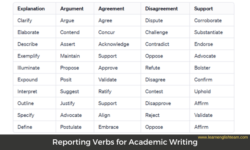10 Everyday Scenarios Learning English Can Help You With
English is one of the most widely spoken languages in the world, and having a good grasp of it can significantly improve your daily life. Whether you’re living in an English-speaking country or traveling, being comfortable with the language can make navigating common situations much easier. Here are 10 everyday scenarios where learning English can be a major advantage.

1. Grocery Shopping
From reading labels and ingredients to understanding discounts or asking for help in locating items, English plays a big role in everyday errands. When you can communicate effectively with store employees or read packaging confidently, you avoid confusion and make healthier, more cost-effective decisions.
2. Doctor’s Appointments
Healthcare is one of the most critical areas where language barriers can become a significant issue. Knowing English enables you to accurately explain symptoms, understand medical advice, read prescriptions, and ask follow-up questions. This can lead to better treatment and overall well-being.
3. Using Public Transportation
Navigating public transit systems, especially in busy urban areas, requires the ability to read maps, understand announcements, and ask for directions. Understanding English signs and schedules makes travel more efficient and less stressful.
4. Finding a Job
English is often a requirement for most job opportunities, especially in customer service, hospitality, or office environments. Even if fluency isn’t necessary, a basic command of English helps you read job listings, fill out applications, and perform better in interviews.
5. Renting or Buying a Home
Understanding lease agreements, communicating with landlords or real estate agents, and reading utility bills all require a basic level of English proficiency. Having this skill ensures that you’re not taken advantage of and that you understand your rights and responsibilities.
6. School and Education
If you or your children are enrolled in school, knowing English helps facilitate communication between parents and teachers, enhances understanding of the curriculum, and facilitates participation in school activities. For adults, taking further education or vocational courses also becomes more accessible.
7. Travel and Transportation Logistics
Whether you’re planning a local trip or a cross-country move, English can be crucial. For instance, arranging something like Washington car shipping involves filling out online forms, comparing quotes, and understanding service agreements. If you’re unfamiliar with the process, strong English skills can help you ask the right questions and avoid misunderstandings.
8. Social Interactions
From meeting new neighbors to chatting with co-workers or attending community events, English helps you build relationships. Small talk, making friends, or even asking for help in public becomes much easier when you’re confident in your language skills.
9. Banking and Financial Services
Opening a bank account, understanding your statement, applying for credit, or managing online banking requires you to comprehend financial terms in the English language. A strong command of the language can prevent costly errors and help you make smarter financial decisions.
10. Emergencies
In urgent situations, such as accidents or natural disasters, being able to understand warnings and communicate clearly with emergency services is crucial. Knowing English can literally be a lifesaver.
Summing Up
Learning English opens doors in almost every aspect of life. Whether you’re enhancing your career prospects, managing personal affairs, or simply going about your daily routine, stronger language skills provide you with independence, confidence, and peace of mind.



